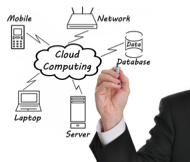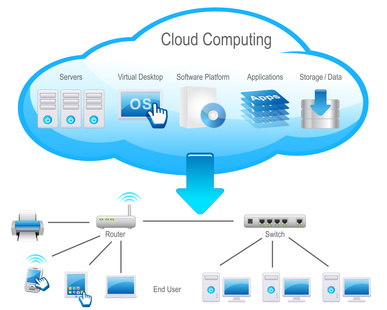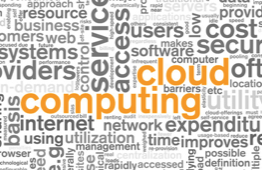
A Technology Management Consulting Group

MIG offers services ranging from specific IT strategy, planning, development, and implementation capabilities to broader organizational transformation support. In addition to converting traditional services to make them “cloud ready,” we are already helping clients conduct readiness assessments and diagnostic evaluations.
Based on a data-driven, diagnostic approach, MIG’s IT strategic planning is ready to assist our clients in uncovering the key considerations, and other important factors to aid in their migration to cloud computing.
OUR CAPABILITIES
We have advocated cloud computing as a viable option to meet a variety of mission challenges, from prompting innovation to developing new collaboration and data sharing initiatives that are critical for supporting overseas contingency operations. We offer our clients the following services in this major transformative area:
- Cloud Strategy and Planning. We serve as advisors in areas involving portfolio management, transition planning , return on investment (ROI) and risk management assessment, cloud policy consulting, cloud governance policies, cloud data strategies, technology forecasting, and other related strategic service areas.
- Cloud Application Development. We support the development, deployment, and management of applications in the cloud as well as the reengineering of legacy systems, data management, and application and service integration.
- Cloud Infrastructure Services. We provide infrastructure assessment and analysis, design consultation, and private cloud implementations.
- Cloud Security Services. We provide a full range of security solutions for the certification and accreditation of cloud solutions, identity management, cloud segmentation, security audits, application and data obfuscation, and security integration.

- What is Cloud Computing?
- What is Cloud Computing?

Cloud computing is a generic, catch-all term that many people use to explain many different IT concepts, solutions and services that might or might not be actually cloud computing. Because cloud computing is constantly evolving, the IT industry has had a difficult time creating a concrete definition for the concept. This article will focus on defining the basic nature of cloud computing, which won't change, regardless of how cloud computing evolves.
What it is
Cloud Computing is an IT service intended for business use that vendors such as Salesforce.com, Rackspace and WebSense offer "on-demand." Vendors provide "on-demand" services such as CRM, off-site storage, hosted email solutions, secure web portals, etc. Instead of spending money on applications and hardware, businesses have access to the same resources without the commitment of ownership.
Where it's located
Because services are provided over the internet, the vendor can be located anywhere in the world and it won't impact quality of service. Businesses can access most purchased solutions through a secure device such as a workstation, laptop or smartphone and a web browser such as Internet Explorer or Firefox.
Key characteristics
While each cloud computing vendor will operate with a slightly different business plan, all vendors do share similarities.- Affordable- As an "on-demand" service, vendors will only charge businesses for the resources used. Typically, you will sign a contract of some sort, but the terms are flexible and should meet your business needs.
- Scalable- Most vendors provide cloud computing services to organizations of any size. Your business will not be restricted by its number of users or amount of data.
- Self-service- While vendors will maintain the hardware and the solution, your business will be responsible for maintaining all data.
- Multi-tenancy- Vendors store data from multiple companies on the same hardware. Don't worry; your business's data will be kept separate and secure through application architecture, while sharing resources such as storage, memory and processing power.
- Redundant data storage- Most solutions provide multiple physical sites where they will store multiple copies of data, making cloud computing suitable for businesses that need high-availability.
Every business that uses cloud computing solutions will realize many benefits. While some benefits will be particular to your individual business, two key benefits that all businesses realize are as follows:- No out-of-pocket infrastructure costs- With cloud computing, your business won't need to buy additional servers, hardware or networking equipment to take advantage of a solution.
- Simple to support- Vendors will service and support their solution, upgrading and patching your solution so you don't have to.
- Managed email- Many vendors offer solutions that will work well at your physical business site and on you mobile devices such as iPhones, Blackberries and other smartphones.
- Email Archiving- With cloud computing, your business can store an unlimited amount of email, providing your business with a clear audit trail.
- Secure Web Gateway- This cloud computing solution will babysit your network by limiting access to specific web pages and blocking access to others. This enhanced security will help protect your entire IT network from malware.
- CRM- Vendors such as Salesforce.com and Dynamics provide customizable customer management, sales, and marketing campaign tools for your business.
- Finance/Accounting- The vendor will host the software application, process the data, integrate it with taxes and also take care of payroll, expenses and other business needs.